Phonics practice Building Vocabulary Worksheets for Ages 3-7
6 filtered results
-
From - To
Unlock your child's reading potential with our Phonics Practice Building Vocabulary Worksheets, specifically designed for ages 3-7. These engaging worksheets aim to develop essential phonics skills, making learning fun and effective. They feature colorful activities that enhance word recognition and sound blending, fostering a solid foundation in literacy. Each worksheet is crafted to help young learners expand their vocabulary through play-based learning and interactive exercises. Perfect for parents and teachers alike, these resources feature a variety of themes and levels, ensuring every child can master phonics in an enjoyable way. Visit our site and empower your child's reading journey today!
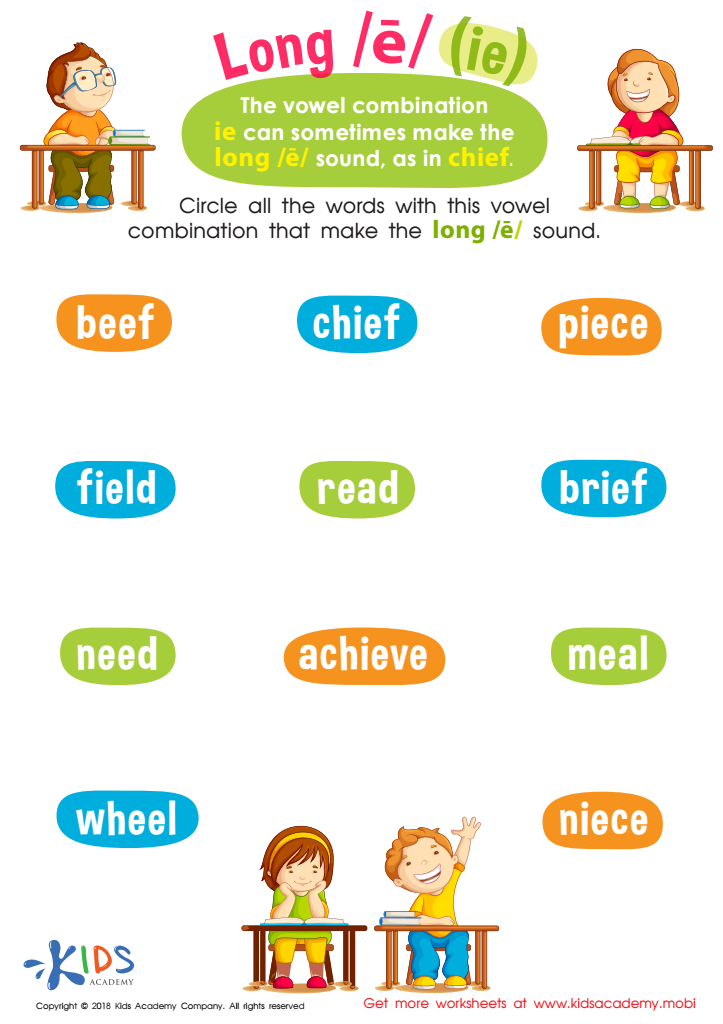

Reading: Long E and IE Worksheet


Short Vowel Eggs Worksheet
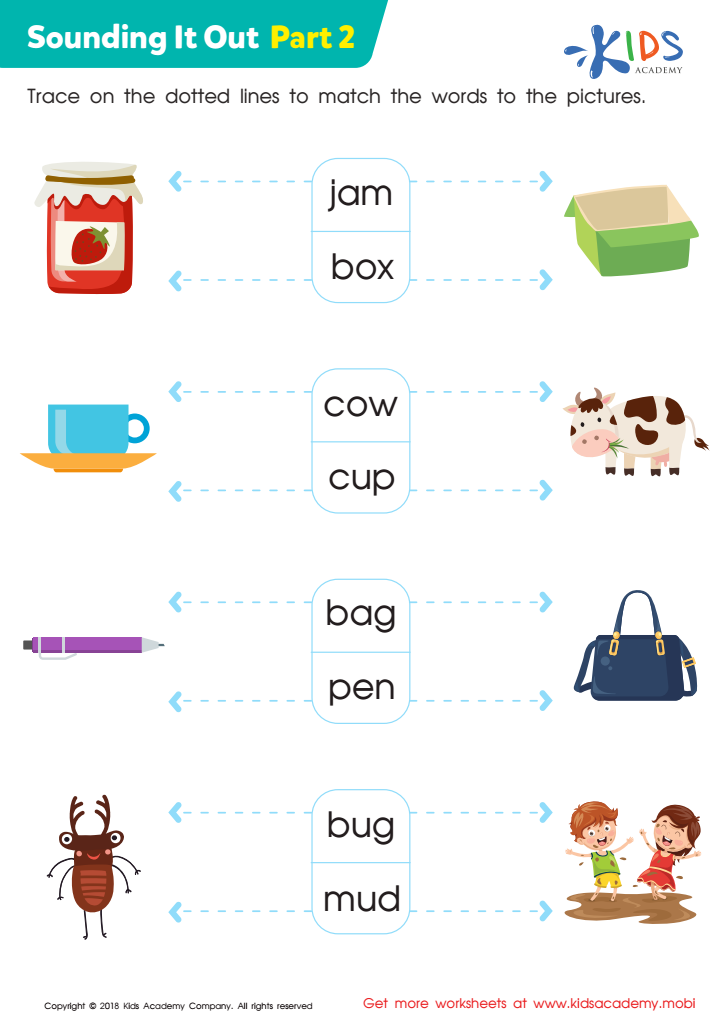

Sounding it Out: Part 2 Worksheet
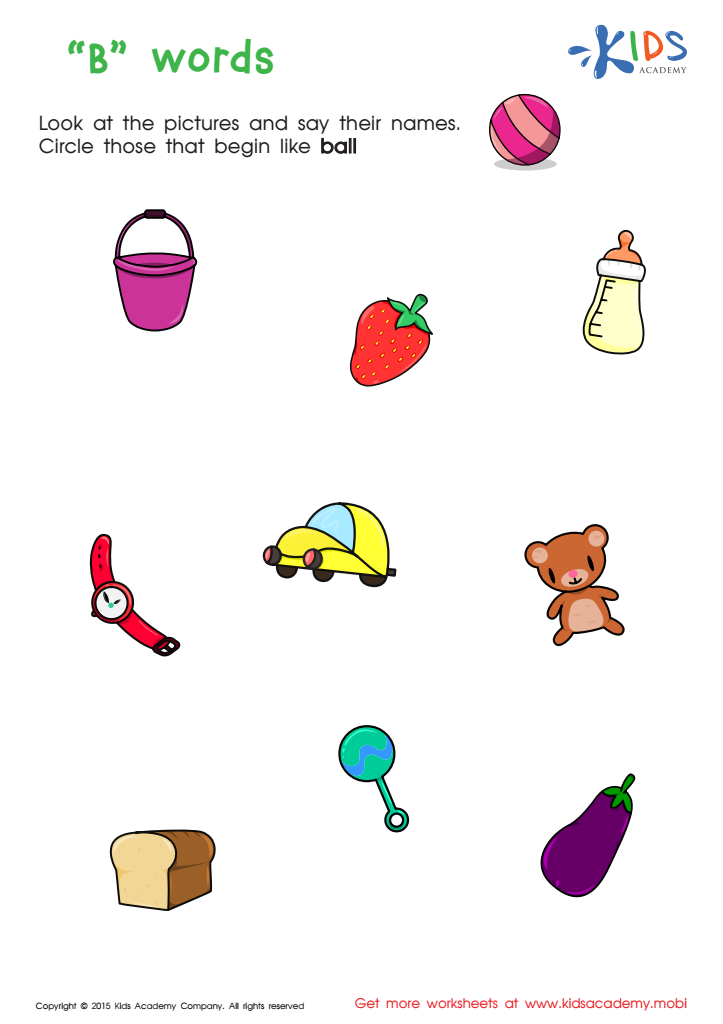

First Words Worksheet
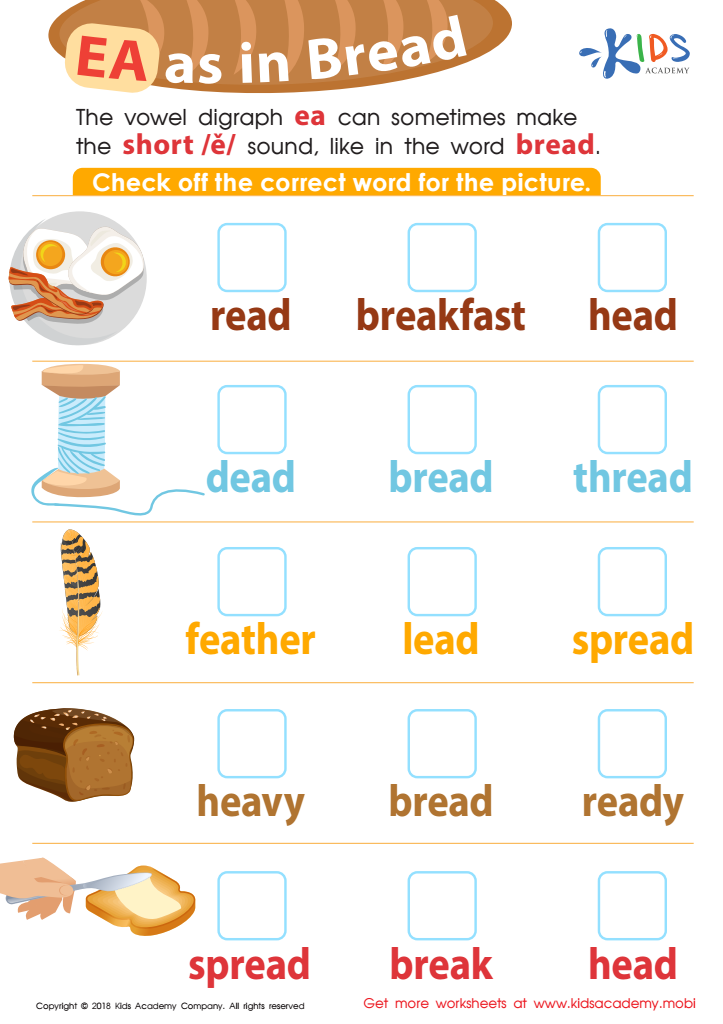

Reading: EA as in Bread Worksheet
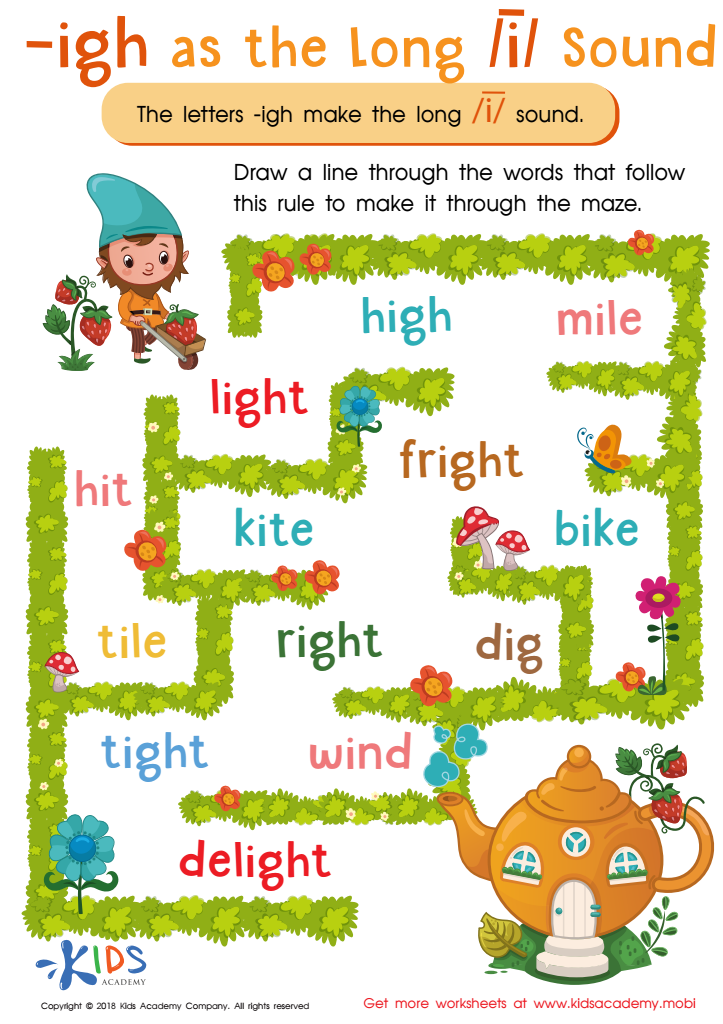

Reading: IGH as Long I Worksheet
Phonics practice is essential for children aged 3 to 7 because it lays the foundation for reading and writing skills, crucial for academic success. During these formative years, children are naturally inclined to absorb language, and phonics helps them decode words by understanding the relationship between sounds and letters. This practice boosts their ability to read with fluency and comprehension, enabling them to explore a wider range of texts.
Moreover, effective phonics instruction builds vocabulary. When children learn phonics, they are better equipped to pronounce and decode new words, which in turn enhances their word bank. As they encounter new vocabulary, they become more confident readers and communicators, allowing them to express themselves more effectively.
Additionally, a strong vocabulary is linked to improved listening and speaking skills, which are vital for social interaction and overall language development. Parents and teachers who prioritize phonics practice not only improve children’s literacy but also support their cognitive growth and critical thinking skills. By fostering a love for reading early on, caregivers can cultivate lifelong learners who are eager to engage with literature and develop a broad understanding of the world around them.

 Assign to My Students
Assign to My Students































